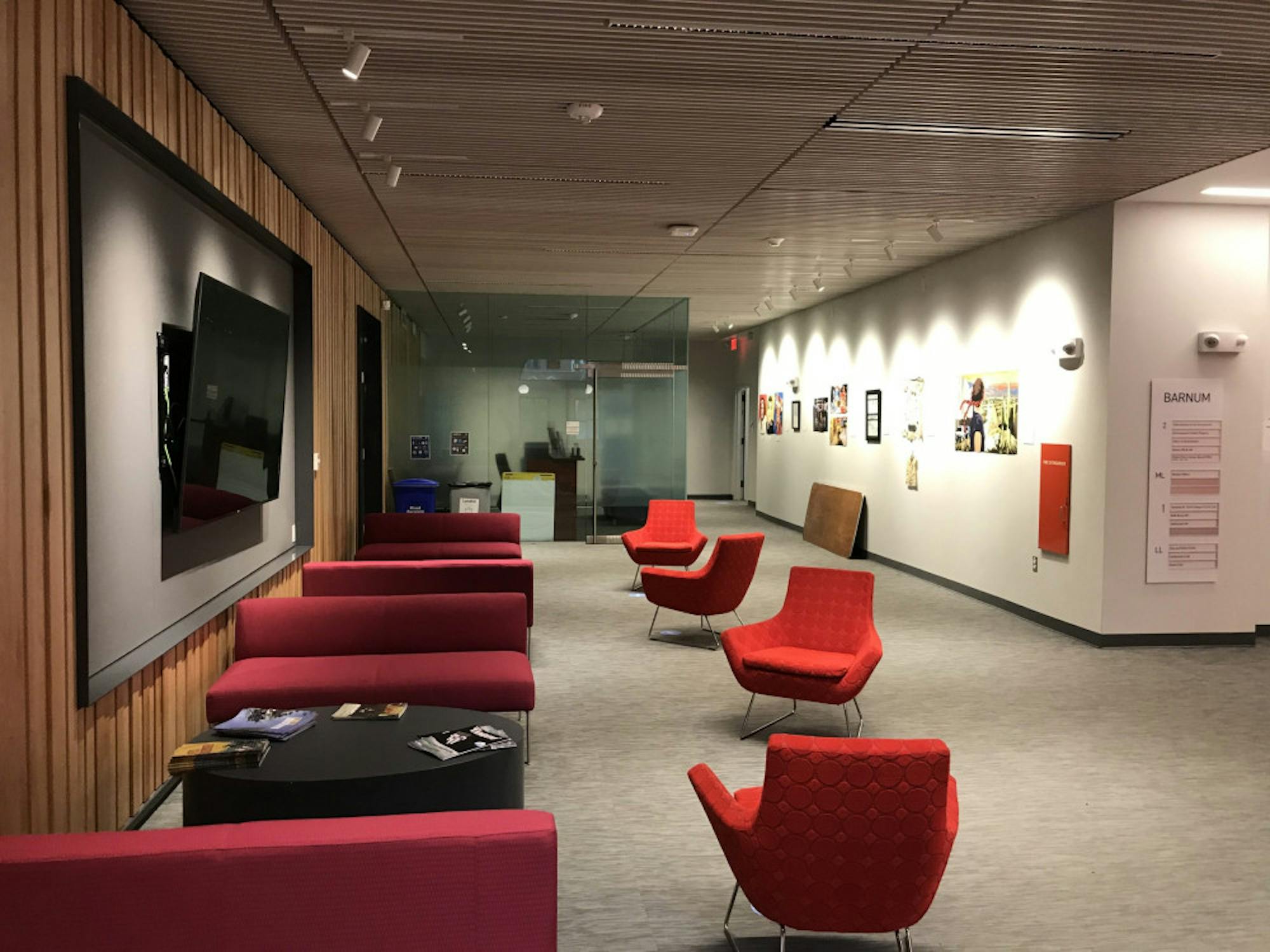The Film and Media Studies program has seen significant growth during the past few years.
Natalie Minik, a lecturer in the FMS program, noted how the program has grown since she first came to Tufts in 2015 as a part-time lecturer in both the FMS program and the Experimental College.
“There was a lot of excitement about the program … but not a lot of infrastructure yet to really help the students. … When I first started we were still sharing a space with the ExCollege,” Minik said. “We now have studio space, we now have classrooms, we have a lot more equipment and we have a lot more students.”
While people may not first think of Tufts when looking into studying film and media,Minik sees Tufts as a valuable place for an FMS education because it is constructed through a liberal arts lens of learning. Minik feels that this approach to learning film can accommodate different interests.
“It’s not just about technical elements of filmmaking [and] media but rather making things within a conversation with other formats and … in a liberal arts setting,” Minik said “I think that Film and Media Studies is a program also that can really be customized toward … students’ interests. We have an incredible amount of students who are double majors.”
Kaycee Feldman is among these double majors in her study of FMS and physics. Many of the other FMS double majors she knows are pursuing humanities, but she has found that the skills she has learned in physics have been applicable to her work in film.
“I have to think of things outside of the box and look at problems from different angles, and so that … has opened my thinking toward other ways of looking at other problems in my life,” Feldman, a junior, said. “There might be a problem in film where it’s like something is not working, or a piece of equipment breaks, and so I have to look at it in a different way to try to figure out what I can do with what I have — the same way that I do with physics.”
For Feldman, physics is more of an interest rather than a job prospect since she wants to write in animated television. Feldman has found the FMS courses to be geared more toward film rather than television, yet she has still found ways to learn more about her interests.
“I wish there was more but I’m definitely happy and … I am still learning about [television],” Feldman said. “It would be cool if there was a television writing course, but I’m not devastated … my screenwriting professor has still given me a lot of good advice related particularly to writing for television.”
Senior Kayla Avitabile is also a double major, and she is studying FMS and American studies. Avitabile has seen the FMS education at Tufts as beneficial because it requires students to take film theory and film history courses as well as courses in social science and foreign language films.
“It really forces you to think critically about media and how it is represented to us throughout history,” Avitabile said. “I think that if you want to be someone who makes good media, makes compelling stories … you have to know the content.”
Avitabile has also brought film outside of her academic life through her involvement in Tufts University Television. She is the head of the club as the station manager. Since joining her first year, Avitabile has enjoyed her time in TUTV from the friends she has made to the experiences she has had in creating media.
“[TUTV was] kind of like the first place at Tufts that made me feel like I belonged or had a community,”Avitabile said.
Feldman also joined TUTV during her first year and is currently the treasurer. Feldman has enjoyed the TUTV community because it consists of people who are brought together through their love of film and media.
“It’s nice to have that community that is bonded around [film and media],” Feldman said. “I’ve met people in FMS that I wouldn’t have met because they’re in classes above me, and it’s wonderful to hear their experiences, [be] mentored by them and get to know them.”
According to Avitabile, TUTV’s subject matter falls under the categories of news, music and fictional scripted content. Avitabile also said that TUTV has its own take on Buzzfeed, known as “Bosfeed,” which can be found on the club’s YouTube channel. The club allows for a broad range of opportunities for students to get involved, whether this means participating in a club-wide project like “Pocket Docs” — where club members make documentaries on their phone — or getting their own project approved for funding by the TUTV board.
“If anyone’s not interested in doing any one of our big projects, we allow people to pitch projects to us if they want to pursue their own thing,” Avitabile said. “We offer a lot of opportunities to just make media.”
For students interested in film and media, Avitabile suggests that they consider pursuing a major in FMS or joining on-campus student media organizations like TUTV. Avitabile thinks that FMS has great significance within the present day’s media-heavy landscape.
“Everything is so involved in media now that it’s just really an essential skill at this point,” Avitabile said. “I think that having media literacy and also just knowing your way around that kind of stuff is really, really useful in this time that we are living in.”






